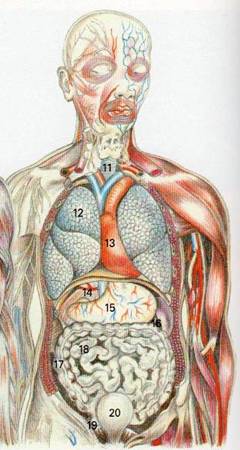Module 7: The ASEAN World of Medicine
Table of Contents
Reading Text & Presentation
7.1 The human body
7.1.4 The gastrointestinal system
One section of the human body contains many organs that often cause concern in the medical world. These are the internal organs, some of which make up the digestive system. People often have problems with their digestive systems. The digestive system, or more accurately the gastrointestinal system, is made up of the mouth, esophagus, stomach, small and large intestines (gut), and rectum, as well as the liver, pancreas, gallbladder, and salivary glands. The system converts food into small, nutritional, non-toxic molecules for distribution by the circulation to all tissues of the body, and excretes the unused residue. Another system that is closely connected to this is the urinary system, which consists of the kidneys, ureters, bladder, and urethra. This system removes water from the blood to produce urine, which carries a variety of waste molecules and excess ions and water out of the body.
As with the parts of the human body that we have looked at already, these systems have their own large field of specialized vocabulary.
|
|
|
 |
KEY: 11. trachea
|
The world of medicine has advanced so far that nowadays it is possible to replace or transplant defective organs, if a suitable donor can be found. Such operations obviously involve specialized surgery.
Language Focus 7.1